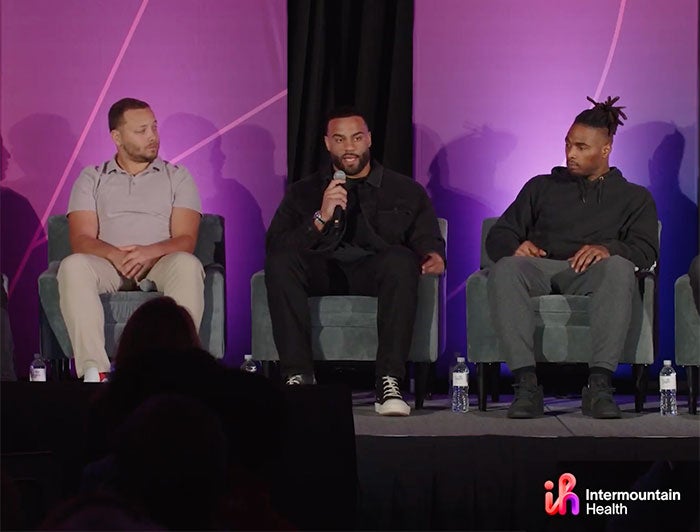NFL Pros Tackle the Importance of Mental Health
Intermountain Health
Salt Lake City, Utah

The alarming rise in the prevalence of mental health disorders and suicide among young people has been widely documented, but when the epidemic is spotlighted for high schoolers by a group of current and former NFL pros the message is especially hard-hitting.
Timed to coincide with May as Mental Health Awareness Month, Intermountain Health invited “The Defensive Line,” a group of professional athletes who have struggled with their own mental health issues, to talk with high school students in Las Vegas’s Clark County School District about the importance of addressing mental health.
“The Strongest Play is Asking for Help” event reinforced themes of honesty and empowerment to a diverse audience that included city and community leaders as well as students. Each player shared personal anecdotes, illustrating their struggles with mental health and the journey toward openness.
The players on the panel who talked to the students included: Solomon Thomas, co-founder of The Defensive Line, New York Jets; Brandon Bolden, formerly of the Las Vegas Raiders/New England Patriots; Darren Waller, New York Giants; Carl Nassib, retired NFL player; Alec Ingold, Miami Dolphins; Cedric Tillman, Cleveland Browns; and Marcus Smith, retired NFL player.
The Defensive Line has been working nationwide on suicide prevention messaging, especially calling out the increased risk for Black youth. Among those youth, the risk for Black females has risen by 182 percent between 2001-2017.
Black men also have elevated risks with 80 percent of suicides among that population being male, and the highest number of them are in their early 20’s.
“We have been defined as men that we have to be tough, and that we define strength in the entirely wrong way,” said Solomon Thomas on the panel. “But through my journey of grief, my own mental health journey, and everything I have been in, I have learned that being tough is not strength. Strength is being vulnerable.”
The panel conversation can be found at www.strongestplay.com along with local and national mental health resources.

